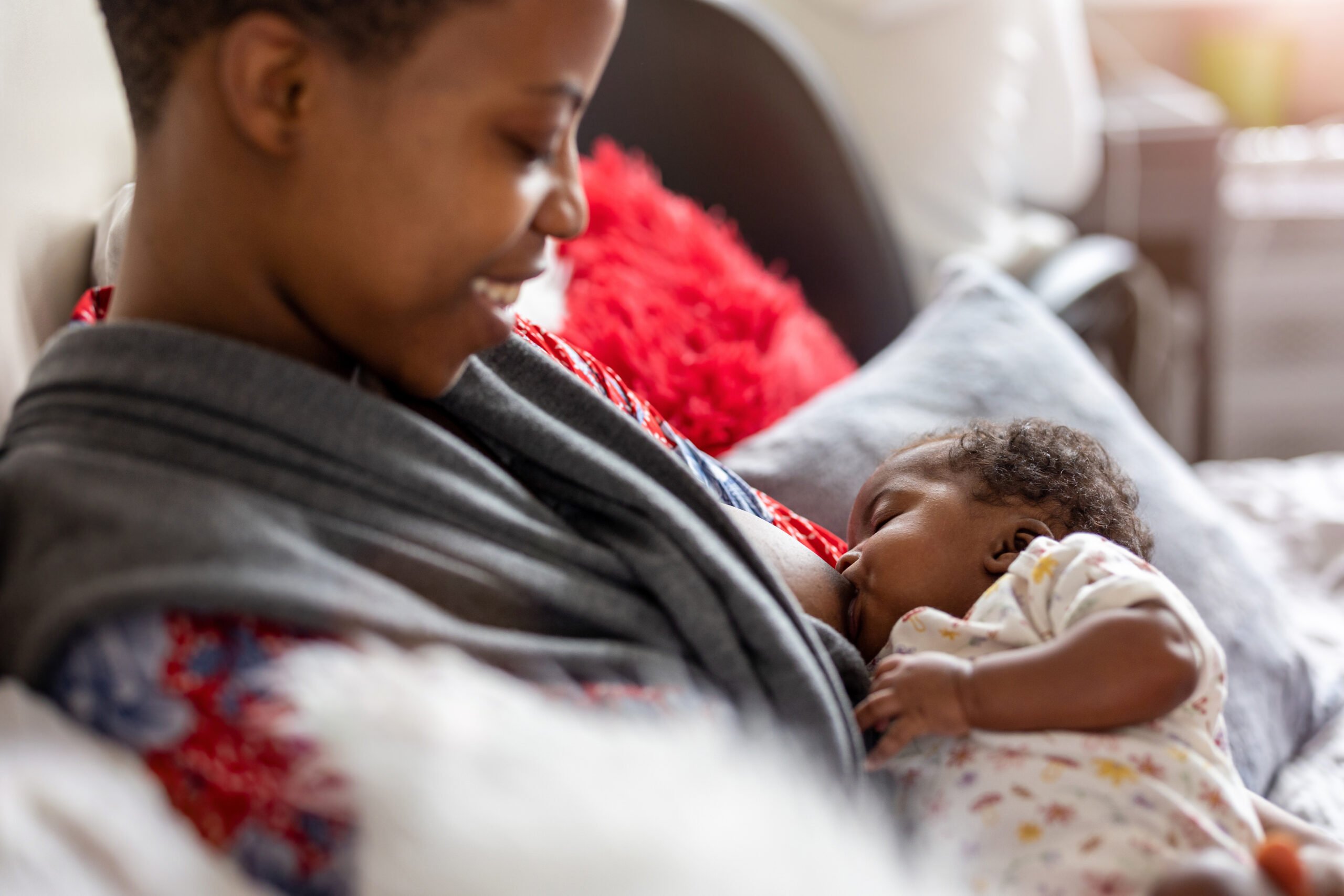
Breastfeeding is an important, beautiful, and complicated journey for many parents, which is one of the reasons why it’s so important to highlight the process. August is National Breastfeeding Month — a time to bring awareness, education, and advocacy. Ten years ago, three founders created Black Breastfeeding Week, which will be honored from August 25th through August 31st this year.
According to the CDC, “Black mothers disproportionately experience a number of barriers to breastfeeding, including lack of knowledge about breastfeeding; lack of peer, family, and social support; insufficient education and support from health care settings; and concerns about navigating breastfeeding and employment.”
Pair these with a national formula shortage and a pandemic, and the odds are stacked even higher against Black mothers who wish to breastfeed their babies.
However, all hope is not lost
We talked to Rachel Whigham, a Black breastfeeding mom of four children. Her oldest child is now 15. She also has a 4-year-old, a 2-year-old, and an 8-month-old. She and her husband have been together 14 years.
Rachel had Trey when she was a teenager, and despite her many commitments, she opted to breastfeed him. She remarks that she chose to breastfeed her son, just like her own mother breastfed her. With the help of a breastfeeding class and a lactation consultant, she learned how to breastfeed. Through her first year in college and working two jobs, she breastfed her son for 17 months.
There were times she relied on pumping, which was quite demanding, but she says her “determination definitely trumped any barrier” she faced. She even did a breastfeeding project for her social psychology class, focusing on the social stigmas of nursing in public. These steps helped her become a confident nursing mom.
She found (and still finds) breastfeeding to be “exhausting but so rewarding,” as well as “so empowering.” While she managed to nurse, she recognizes that many Black moms do not. She believes this is due to a “lack of education and support.” Breastfeeding, she shares, is “tough mentally, physically, and even emotionally.”
Hands down, she says, moms require support to go the distance
And not just any support, but “a safe space.” Nursing is, as Rachel shared, not just a physical task, but a whole-self one.
Rachel says that moms must “ask for help,” and if they don’t get what they need, ask again. They need to keep advocating for their desire to nurse, “don’t give up when it’s hard,” and go ahead and (endearingly) “bother” people who can be great resources. There are more resources than ever before, including support groups specific to Black nursing mothers, as well as nursing professionals — both in the clinical setting and privately.
Black moms often meet resistance when they express a desire to breastfeed
Rachel says Black moms have to “block out the bad” and “kindly decline” the advice of naysayers. As an experienced, nursing mom, Rachel says she enjoys the endorphins and connection that breastfeeding provides.
She also reminds moms that their bodies make the exact milk that’s specific to their baby’s stage and needs (such as combating illness). This is one reason why she dislikes when medical professionals push supplementation on Black mothers instead of offering sound breastfeeding advice and support. If the mom expresses the desire to nurse or keep nursing, she should be empowered to do so, not shamed, doubted, or manipulated into another choice.
Rachel wants moms who desire to breastfeed to begin the process of figuring out what questions they have and where they can find support to gain answers, but also to troubleshoot. Though it’s not quick and easy, she wants moms to build the confidence to seek answers and to push themselves to hold to their desire and decision to breastfeed.
A mother’s love is like no other, and if a Black mother has decided she wants to breastfeed, she should be supported in doing so. Rachel shared that though nursing has its challenges, she loves “the way my baby looks into my eyes, falling asleep at my breast.” She adds, “I love that I get to be such a great contribution in my child’s life.”




